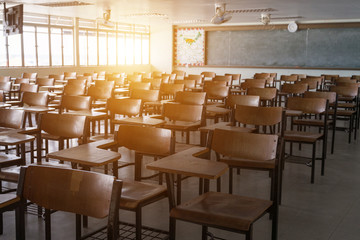Principal David Krakoff

Principal David Krakoff
Principal David Krakoff is an instructional leader who holds years of experience within the education sector. In his role as school principal, David has made a point to contribute to supportive and inclusive learning environments for all learners, guiding elementary, middle, and high schools to refine strategies to increase student achievement. Mr. Krakoff has served in a diverse range of capacities prior to his work as principal, holding positions such as central office administrator and vice principal.
In David’s role as principal, he has had the privilege to serve four public schools located in Florida and Pennsylvania. In his most recent high school principal position in Midland Pennsylvania, Mr. Krakoff has worked towards the goal of increasing student proficiency rates and growth rates on state assessments while implementing strategies to create more inclusive, supportive educational environments.
David Krakoff’s career in education is underlined by a variety of accomplishments that show his commitment to bringing positive change to the schools that he serves. At The Villages Charter School in Florida, Mr. Krakoff worked with his teams to help the school receive six consecutive “A” ratings from the Florida Department of Education. At Woodlands Hills Junior High School in Pennsylvania, he was responsible for leading the school to success in 19 areas of NCLB during the 2009-2010 school year.
Notably, David has reduced student suspensions by as much as 50% at each school he has served as acting principal. David is also recognized for his commitment to leadership and mentorship, as he has become a mentor principal with Florida Atlantic University’s program for aspiring leaders, has been selected as one of ten middle school principals for the National Institute for School Leadership (NISL) and Rand Corporation study on school improvement, and has assisted countless educators on their path to success in education.
As a principal, David Krakoff has built a reputation on his belief that education systems can empower students to play a direct role in their own growth. David’s investment in Glasser Choice Theory disciplinary systems and restorative practice as well as his dedication to facilitating environments focused on social emotional growth, lowering disciplinary infractions, and assisting at-risk students as they improve performance in assessment areas are serve as examples of Mr. Krakoff paving the way for a landscape where all students can succeed.
Creating Supportive Academic Environment Starts with Us

David Krakoff has spent years working with schools in an effort to create supportive academic environments geared towards the success of all students. Mr. Krakoff maintains that, while the implementation of strategies that make schools more supportive can be daunting at first glance, education providers can focus on a few core aspects of the student experience to bring sustainable, positive change in a simple and effective way.
Below are a few educational insights from David Krakoff’s experience on how forming supportive, inclusive academic environments truly starts with us.
Foster Strong Connections with Students, Staff, and Guardians
Strong connections are the backbone of any real change in the world of education. When we work to make sure that students, their families, and staff are able to play an active role in the development of learners, we are providing them with a sense of agency that will bring about more positive experiences naturally. Schools should, therefore, make a point to connect with their communities and get a feel for their goals, thoughts, and feelings at each step of the learning process. It all starts with positive interactions and contributing to a landscape where we all feel comfortable, supported, and empowered.
Outline School Rules for Positive Behavior
Students look to educators and staff as role models, especially when it comes to communicating the rules and expectations of their academic environments. For this reason, principal David Krakoff always recommends ensuring that the rules for positive behavior are properly outlined to all students early on. The establishment of simple codes of conduct can go a long way towards helping students remain kind and supportive to one another, minimizing interpersonal conflicts that may arise. Many experts recommend framing classroom and schoolwide rules in a positive manner for best results. For example, rather than presenting a rule that says, “do not disrespect other students”, schools may have more success with a rule stating, “all students will be respected at all times”.
Develop A Culture of Representation

When working to create and uphold an environment where all students can succeed, it is important to be positive that there is a culture of representation with all students in mind. Representation that is not just geared towards students who are already viewed as academically or socially successful is vital for maintaining a focus on inclusion and support. Principal David Krakoff mentions that one of the most effective ways to test a school’s culture of representation is to check how well students in marginalized groups are being represented and supported in the existing environment. Helping students feel a sense of belonging in the classroom through diversity, equity, and inclusion (DEI) initiatives, for example, can have a profound impact on test scores, creating positive social interactions, and graduation rates.
Focus on Prevention and Effective Interventions to Disciplinary Issues
Even in the most well-run schools, students will have slip ups that require staff intervention. What matters here is that schools are consistently working to create a culture focused on prevention and effective interventions to disciplinary issues. Not only does this help minimize chances of repeated infractions, but it also plays a role in empowering schools to get to the bottom of why infractions occur in the first place. There is a reason why more educators across the country are reforming their current punitive strategies to instead feature a more restorative approach. Research supports that more punitive approaches can create a culture where students are locked in cyclical behaviors, do not get the most of their educational experience, and face issues later on in life such as dropping out, having issues with the law, and more.
Be Open to Feedback
Many of the schools that have had the most success facilitating supportive academic environments have created channels where students, their guardians, and staff can voice feedback on the current way of things. Being open to feedback is so important for schools because we need to create environments where each piece of the educational puzzle feels empowered to speak on their thoughts, feelings, and ideas. No school or educational environment is perfect, and a continued commitment to making positive change is what defines the most supportive schools in the country.
Interested in More Education Insights from Principal David Krakoff?
If you are on the lookout for education sector insights from a principal and educational leader with years of experience, you have come to the right place!
Tune in to the blog for more information on topics such as:
- Education
- Administration
- Professional Development for Education Leaders
- Education Sector News